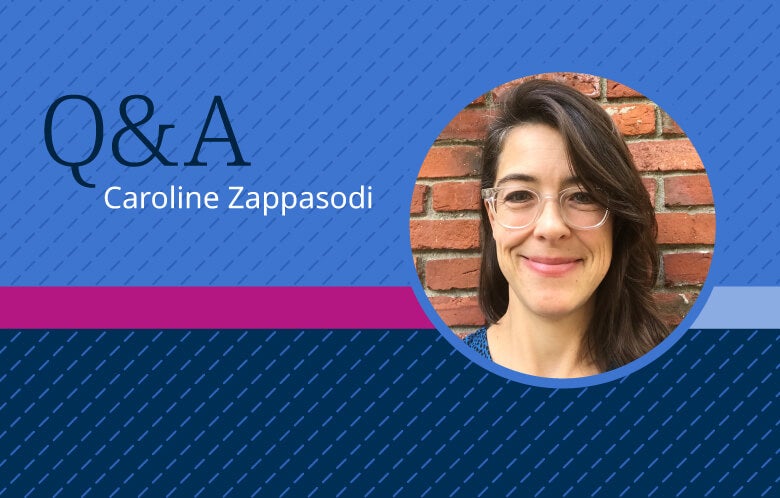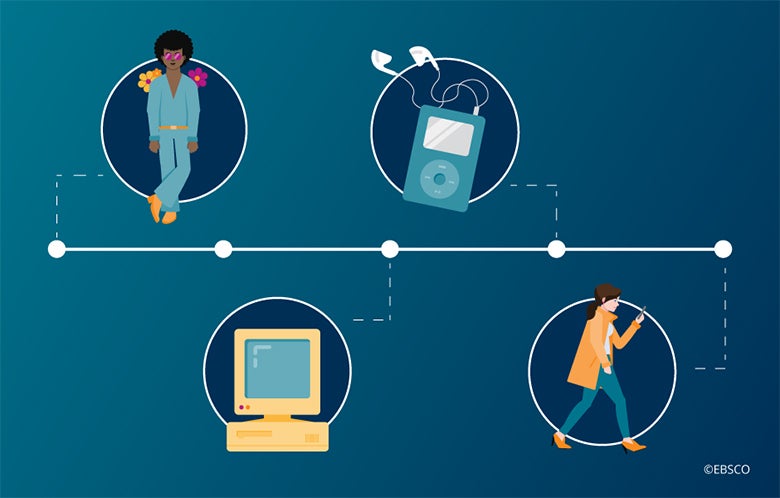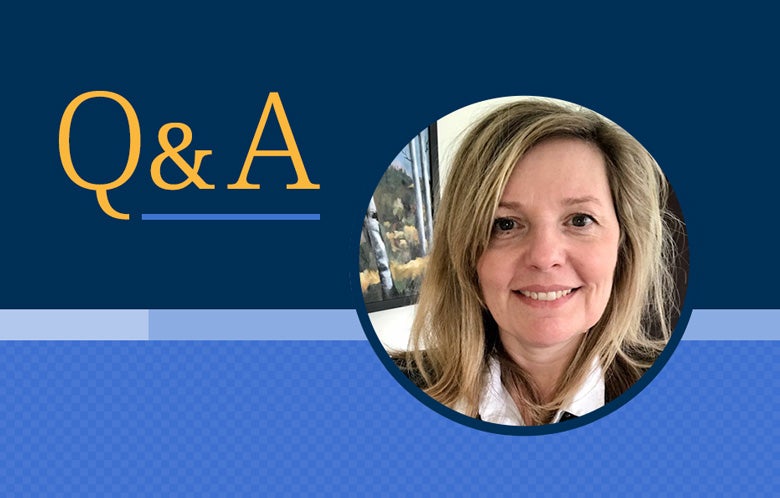As libraries shift to online and distance learning in response to the COVID-19 pandemic, getting the e-book resources that students and faculty need is more important than ever. Libraries rely on GOBI for e-book collection development and acquisition support, and GOBI has continued to evolve to ensure that it offers the broadest selection of e-book acquisition models and platforms in one place. Evidence-Based Acquisition (EBA) is becoming an increasingly popular acquisition model for libraries, as it helps them select and acquire books based on usage, while also maintaining control of their budgets.
Read the Q&A with Caroline Zappasodi, Director of Product Management at EBSCO Information Services (EBSCO), to learn more about the development of Evidence-Based Acquisition in GOBI. Caroline has been a member of the Books Product Management team since 2013. In her role, Caroline is primarily focused on supporting product research and development for EBSCO Books librarian-facing workflows. Caroline enjoys speaking and working directly with librarians to truly understand the pain points they face and taking that knowledge to help build solutions.
To start, what exactly is Evidence-Based Acquisition (EBA) for those who may be unfamiliar with the term?
Evidence-Based Acquisition is an e-book access model that provides libraries and their users broad access to a collection of e-books for a pre-negotiated fee. The access provided equates to a fraction of the value of the content and allows libraries to gather evidence about usage before selecting titles to own in perpetuity.
How did the EBA model come to be and why is it popular in academic libraries?
It was initially born from a desire by publishers to provide broader exposure to their content in academic libraries. The assumption was that providing libraries more expansive access would result in librarians discovering usage in unexpected subject areas. Libraries could then take that data and use it to refine their acquisition behavior.
For libraries, the EBA model is gaining popularity because it provides predictability around expenditures and content availability. Libraries have better control over the collection development process, with predefined content pools and content expenditures. Decision-making for libraries is user-informed and librarian-controlled.
How did EBA through GOBI come about?
The evolution of EBA in GOBI was driven primarily by our customers. GOBI customers, both individual institutions and consortia groups, participating in these programs were thrilled with the access model and the benefits provided by publishers, but there was one significant benefit missing — the integration with their core acquisition workflows.
Libraries who rely on GOBI for purchase of print and e-books wanted GOBI to have information about titles in these collections to ensure de-duplication was possible where desired. With GOBI profiles driving such a significant volume of library purchasing (auto-purchases, notifications, DDA pools), it was important that title detail for EBA or eCollections be included in GOBI.
Who did you work with to identify customer pain points and the features/functionality needed?
Over a period of a year we conducted user research, partnering with approximately 20 customers, including individual libraries and consortia buying groups, in North America, Australia and New Zealand. We asked questions about their current EBA programs and workflows, what worked well and what did not, and what role they envisioned GOBI playing in this process. Through these conversations, we identified commonalities across customers. This helped form our vision for GOBI EBA workflows.
Another key aspect of our research was understanding the needs of publishers offering evidence-based acquisition programs, as well as how we could help them by absorbing some of the back-office work to support technical services, reporting and analysis. It became very apparent what role GOBI could and should play in supporting academic libraries and publishers.
For libraries, the EBA model is gaining popularity because it provides predictability around expenditures and content availability.
For libraries, the EBA model is gaining popularity because it provides predictability around expenditures and content availability.
What was the number one pain point you heard from customers?
There were two pain points which stood out again and again as the most common and critical.
The first pain point was de-duplication. Every GOBI library cited de-duplication as their number one concern. This concern was about de-duplication during the approval workflow but also visibility in the GOBI user interface for all subject selectors. For consortia members, visibility in GOBI was particularly important.
The second pain point was around cataloging and MARC records. Consistency, robustness of the record, timeliness of delivery, and maintenance of records were major areas of focus for libraries. The fact that every publisher had a different process for fulfilling records, and a different level of completeness, posed a challenge for libraries participating in multiple EBA programs. Discovery is key to the success of an EBA program. If titles are not immediately and easily discoverable, they will not garner the level of use expected and impact the success of the program, for both publishers and libraries.
What has GOBI done to address these issues for customers?
In 2018, we released our e-book Evidence-Based Acquisition program in partnership with Cambridge University Press, Taylor & Francis and Wiley. The GOBI EBA service was designed and developed to integrate seamlessly with both publisher and library workflows.
The solutions we targeted as part of our service were:
- Ensuring EBA workflows were seamlessly integrated into GOBI’s existing acquisition and collection management workflow
- Offering robust deduplication services and visibility into EBA holdings for the term of the program
- Offering rapid delivery of full catalog records to ensure discovery and optimize usage for libraries and publishers
- Providing end-of-term support for both title selection and catalog updates
Critical to note is that our solutions hinged on tight collaboration and integration with publishers to ensure accuracy and recency of data.
Did you learn anything unexpected in the development process?
When we embark on the discovery process, where we are trying to tackle a problem for our customers, it is always an exciting challenge. When we explore with libraries the issues they face and realize that the effort is rooted in a human need, it energizes the product team and drives us towards developing solutions that have a positive impact and for which we are proud.
Following release of GOBI EBA, I was on a call with an e-Resources Librarian in Australia, one of our development partners, discussing a research project. During our conversation, the librarian complimented us on the quality of our EBA program and the research that went into developing a solution that really worked. She stated that if we applied the same critical eye to future projects, we’d see great success. This is the feedback that makes us want to continue to do better for our customers and pushes us to approach new challenges.
What’s next for EBA through GOBI?
Since release at the end of 2018, we have expanded our cataloging services and offer more robust reporting and analytics.
While working with libraries who have adopted our EBA workflows, we have found that they appreciate the support GOBI can provide with selection services. We have since rolled out an Enhanced Usage Reporting service, layering key insights onto publisher data, considering library-specific content requirements, and offering a customized output based on the needs of each individual library. In doing this, we save the library and all those involved in the selection process time to focus on more important initiatives. This is never more important than the present.
Finally, the other request we most frequently receive is to expand our EBA offering to include additional platforms, therefore we will be looking to add new suppliers over time based on input from our customers.



